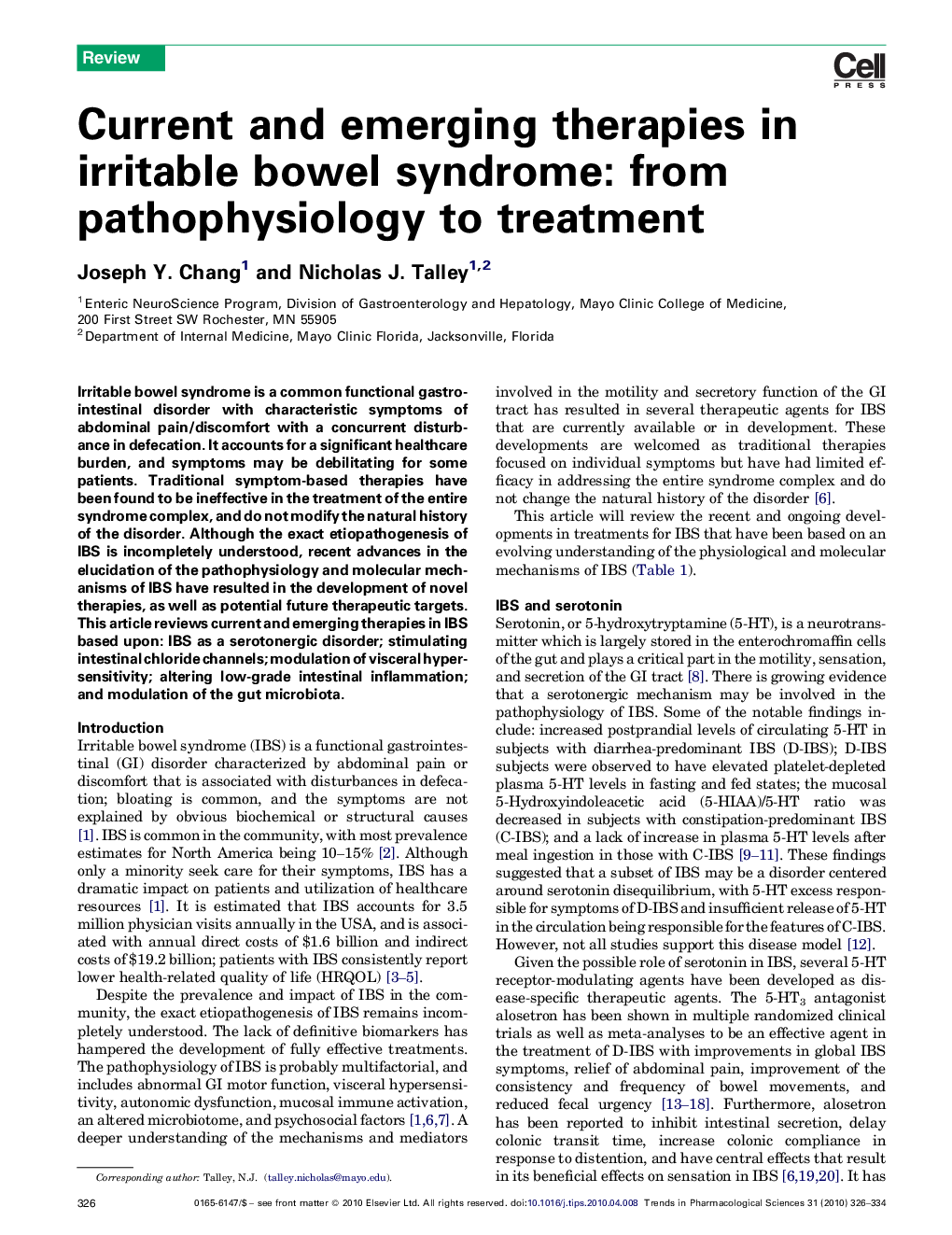| Article ID | Journal | Published Year | Pages | File Type |
|---|---|---|---|---|
| 2573153 | Trends in Pharmacological Sciences | 2010 | 9 Pages |
Irritable bowel syndrome is a common functional gastrointestinal disorder with characteristic symptoms of abdominal pain/discomfort with a concurrent disturbance in defecation. It accounts for a significant healthcare burden, and symptoms may be debilitating for some patients. Traditional symptom-based therapies have been found to be ineffective in the treatment of the entire syndrome complex, and do not modify the natural history of the disorder. Although the exact etiopathogenesis of IBS is incompletely understood, recent advances in the elucidation of the pathophysiology and molecular mechanisms of IBS have resulted in the development of novel therapies, as well as potential future therapeutic targets. This article reviews current and emerging therapies in IBS based upon: IBS as a serotonergic disorder; stimulating intestinal chloride channels; modulation of visceral hypersensitivity; altering low-grade intestinal inflammation; and modulation of the gut microbiota.
